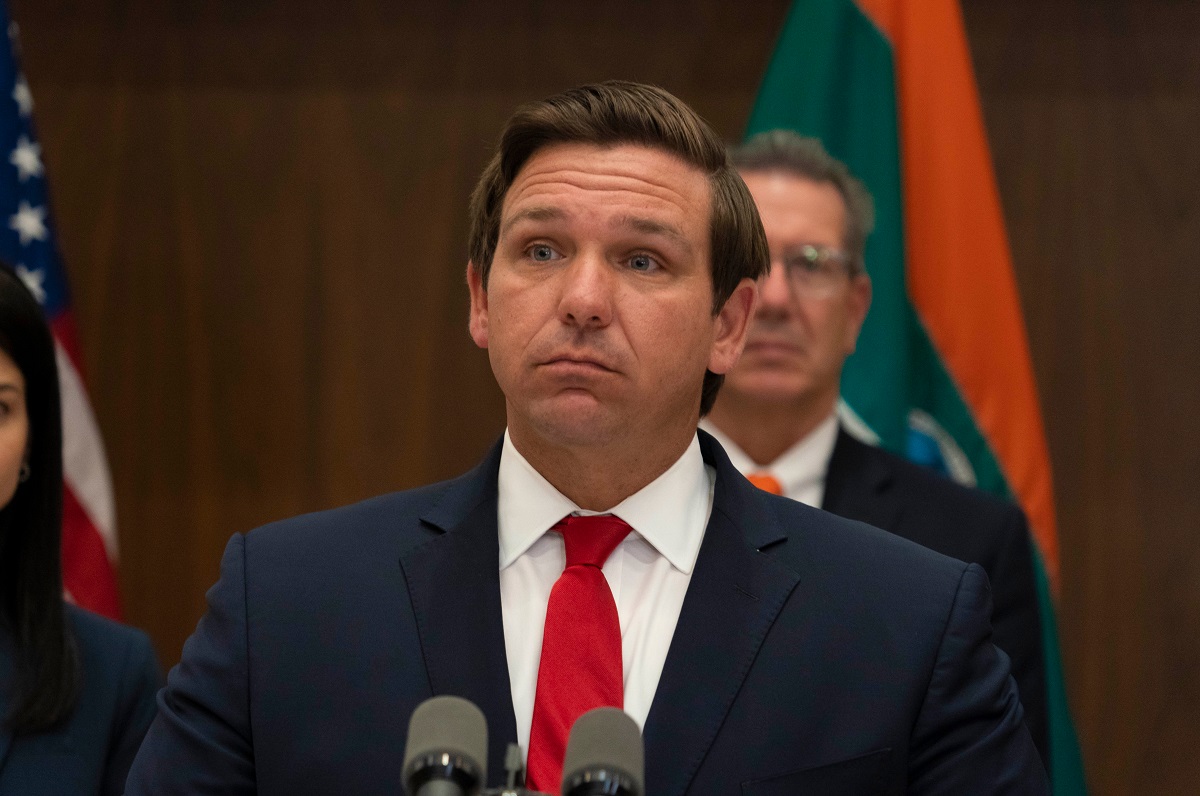Arizona lawmakers are pushing to pass historic legislation that would provide 3 Native American tribes with water rights and funding for water development projects. But will it be approved by Congress?
Settling an Old Dispute

Arizona’s congressional delegation introduced new legislation on Monday that could finally settle a decades-long dispute over tribal water rights for three Native American tribes.
Water Rights for 3 Tribes

If passed, the $5 billion proposal would mark a historic step forward in resolving outstanding water claims in the state. It would bring water and many other benefits directly to the members of the Navajo, Hopi, and Southern San Juan Paiute tribes.
The Legislation

The Northeastern Arizona Indian Water Rights Settlement Act companion legislation was introduced by Sen. Mark Kelly (D-Ariz.) and Rep. Juan Ciscomani (R-Ariz.), and co-sponsored by 5 more senators and representatives.
Settlement Agreement in May

After decades of water disputes, the three tribes approved a settlement agreement in May. Now, tribal leaders and legislators are trying to push the settlement through as the Colorado River continues to drain.
“Lock Them in Now”

“It’s better to lock in these rights now, while that water is there,” said Ethel Branch, Attorney General for the Navajo Nation.
Critical Movement Needed

“Because what lies ahead is really discussions about how to address shortages, and we don’t want to come to the table in that type of environment and ask for water that isn’t there. It is critical we move this forward now,” she added.
The Largest Water Project

If approved, the legislation would grant the tribed $5 billion in federal funding to be used on the tribe’s sovereign territories. It would signal the largest-ever water project for Native American settlements.
Special Tribal Funds

The funding would go into special trust funds for each tribe. These funds would directly pay for water maintenance, development, and delivery projects over the coming decades.
$1.75 Billion for Pipeline

$1.75 billion of the $5 billion funding would also go toward a water distribution pipeline.
Delivering Water to Remote Communities

The settlement would allow tribal management to build infrastructure that will deliver water supplies to some of the most remote communities among the three tribes.
30% Without Running Water

It would be a monumental development for the Navajo tribe, which is the most populous indigenous tribe in the country with 400,000 members. Despite its size, 30% of residents on Navajo reservations do not have homes with running water, according to The Globe and Mail.
Ensuring Future Prosperity

A stable water supply for these communities is vital in ensuring future prosperity, according to Sen. Mark Kelly, the author of the bill. He sees the agreement as a historic achievement after years of back and forth.
Upholding Tribal Sovereignty

“Securing water rights for these tribes upholds their sovereignty and lays the path for their growth and prosperity through increased investment in water infrastructure,” Kelly said.
Something to be Proud of

His co-author, Rep. Juan Ciscomani, sees the bill as a point of pride for the Arizona legislature, and a move to establish a “long-lasting partnership” between the state and the three tribes.
A Chance for Better Planning

“This not only gives much-needed certainty to the tribes but allows Arizona to better plan for a secure water future while providing for improved water infrastructure throughout the region,” Ciscomani added.
Not Approved Yet

While the authors, sponsors, and advocates of the new legislation are celebrating their progress so far, it has yet to be approved in Congress.
Success Still Uncertain

A hearing in the House Committee on Natural Resources has been scheduled this month, and the bill will need support in the House and Senate to win the final vote in Congress. So far it has already garnered some bi-partisan Congressional support, but approval is uncertain.
A Long Process

“We will have to have hearings in both the House and Senate. We are in queue and well positioned ourselves to be a part of that House Committee on Natural Resources hearing,” said Branch. “We are looking for a vote this Congress. Elections are right around the corner and we want to make sure everyone that is in place now will have the opportunity to vote on this legislation.”
Time is of the Essence

For many, the settlement is a time-sensitive matter, as communities around the Colorado River stare down the barrel of a multi-generational drought. The impending effects of climate change mean that an agreement on tribal water rights and funding cannot wait any longer.
Climate Change Won’t Wait

Navajo Nation President Buu Nygren has described lawmakers, political leaders, and commentators as “scared” of the sizeable cost associated with the settlement. But in his words “It’s going to cost more than $5 billion if we wait any longer.”
DeSantis Under Fire As Florida Left Underwater

Florida residents are struggling this hurricane season, and many are pointing the finger at a certain Governor. DeSantis Under Fire As Florida Left Underwater
Factory Shutdowns in Illinois Devastate 1000 Workers

While the job market seems to be in relatively good shape, some states are feeling the burn – Illinois being one of them. Factory Shutdowns in Illinois Devastate 1000 Workers
Largest Data Breach Exposes Full Names, Social Security Numbers, Driver’s Licenses, and More of 3 Million Americans

A debt collection company just experienced a massive data breach that makes your usual cases of identity theft look like child’s play. Largest Data Breach Exposes Full Names, Social Security Numbers, Driver’s Licenses, and More of 3 Million Americans
Featured Image Credit: Shutterstock / mark reinstein.
The content of this article is for informational purposes only and does not constitute or replace professional financial advice.
The images used are for illustrative purposes only and may not represent the actual people or places mentioned in the article.
